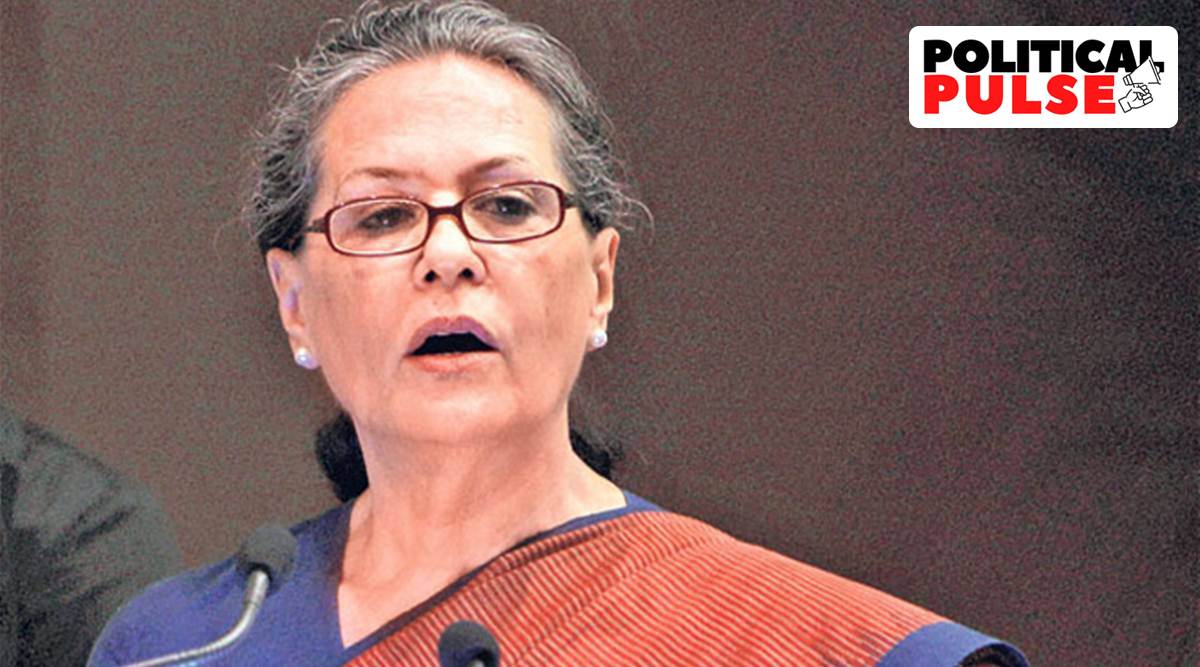 The organisation panel has also suggested that the general bodies of the All India Congress Committee (AICC) and the Pradesh Congress Committees (PCCs) should meet twice a year.
The organisation panel has also suggested that the general bodies of the All India Congress Committee (AICC) and the Pradesh Congress Committees (PCCs) should meet twice a year.Ahead of the Congress’s three-day “Chintan Shivir” that gets underway in Udaipur on Friday, a panel of young leaders appointed by party president Sonia Gandhi has suggested that the party “rebrand” itself as a “considerably young organisation” and reorient its approach and communication strategy to appeal to youngsters.
The 430-odd delegates at the conclave have been divided into six groups. They will hold simultaneous deliberations on the party’s organisational and political challenges, and issues related to economy, social justice, economy, and youth and empowerment. These six groups have prepared a raft of suggestions that will be discussed over two days before the outcomes are distilled into an omnibus declaration on the final day.
The youth and empowerment committee, headed by Punjab Congress president Amrinder Singh Raja Warring, has suggested a complete “rebranding of the Congress as a considerably young organisation with more and more youngsters at all levels as well as addressing issues affecting the youth”. Apart from it, the panel has proposed that 50 per cent of organisational posts should be reserved for those under the age of 50 and those who are below 40 years should be given more consideration during ticket allocation for elections — from local body polls to Assembly and parliamentary elections.
Another suggestion is to prepare a “trained youth cadre” and reorient the party’s communication strategy, approach and the issues its raises with an eye on the youth.
Best of Express Premium
Organisational changes mooted
Party leaders said the conclave’s focus would be on reforming and restructuring the organisation with a time-bound action plan as the challenges before the party were “unparalleled and unprecedented”. While the leaders said there would be calls for former party president Rahul Gandhi’s return to the helm of Congress, they pointed out that the leadership issue would not be the focus of the conclave since the election of a new president is scheduled to be held in August or September.
As reported by The Indian Express on Monday, the Mukul Wasnik-headed committee on organisation has proposed the revival of the Parliamentary Board mechanism. It has also suggested enforcing a “one family, one poll ticket” rule, the setting up of a dedicated structure to manage elections, a cooling-off period of three years for office-bearers at all levels after a five-year term, and allowing state units to have their own constitution with the approval of the Congress Working Committee (CWC).
Some of the Wasnik committee’s other proposals are setting up of intermediary committees between the booth and block levels; 50 per cent reservation in the organisation for Scheduled Caste (SC), Scheduled Tribe (ST), Other Backward Class (OBC) and minority communities; intense training programmes for party workers in ideology and policies of the party; synergy between the party’s communication, social media, data analytics and research wings; and early decision on alliances.
The organisation panel has also suggested that the general bodies of the All India Congress Committee (AICC) and the Pradesh Congress Committees (PCCs) should meet twice a year, and the executive committees of the PCCs should meet once every four months. Besides, it has called for transparency in funding and proposed that the AICC send observers to all Lok Sabha constituencies and the PCCs do the same for Assembly seats. The observers, in the case of Lok Sabha seats, should report to AICC General Secretary (Organisation).
The Udaipur declaration
Issues such as polarisation, Centre-state relations, the role and growth of regional parties, and the party’s stand on alliances will be discussed threadbare at the “Chintan Shivir”.
“The declaration will have our position on issues and the action that we are going to take,” said a senior leader. “We are against, we are concerned, we are worried, all that has no meaning. What we are going to do about it is what actually matters.”
A leader involved in the brainstorming exercise said, “The mandate is not to make the ‘shivir’ a philosophical PhD-type document. The mandate is to make actionable suggestions. It will be an actionable declaration.”
A party leader said the political context this time was different unlike the “Chintan Shivirs” in Pachmarhi (1998), Shimla (2003), and Jaipur (2013). “The magnitude of the crisis that we are facing should not be underestimated. The crisis is unparalleled and unprecedented. We are in power in only two seats. Our strength in Parliament, both the Lok Sabha and the Rajya Sabha put together, is less than 100. So, cosmetic changes are not going to work. We have to make changes that are meaningful and not merely cosmetic,” added the party functionary.
While the “Chintan Shivirs” of the past did not set any timelines, the Udaipur declaration will mention time-bound targets for structural changes in the organisation at all levels, said the Congress leader, adding that the party would have to revive itself before thinking about gaining prominence in any potential anti-BJP alliance. “The message is clear. If the Congress is weak, any coalition of non-BJP forces cannot happen. But if the Congress is strong, the alliance too will be strong.”
- The Indian Express website has been rated GREEN for its credibility and trustworthiness by Newsguard, a global service that rates news sources for their journalistic standards.

